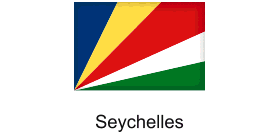 Seychelles implements new civil aviation requirement for enhanced security
Seychelles implements new civil aviation requirement for enhanced security
Seychelles is the first African country to meet the new International Civil Aviation Organisation (ICAO) requirement of enhanced border security after the island nation introduced an advanced information system for passengers travelling in and out of the country before the set deadline, an official said.
The electronic border management system, currently deployed in the Seychelles by Travizory, was broadened in November 2020 to include Advanced Passenger Information (API) and Passenger Name Record (PNR) collection and analysis. It also includes customer and immigration qiestions. By doing so the Travizory became a full Electronic Travel Authorisation (ETA) system for individual travellers, including customs and police.
The Principal Secretary for Civil Aviation, Ports & Marine, Alan Renaud, told SNA that "after 9/11 the governments of the world had started imposing new security requirements on states, and in 2018 it became mandatory for example for all governments to ask for Advanced Passenger Information (API) from airlines for security purposes."
An ETA is an entry requirement for visa-exempt foreign nationals travelling to or transiting to a country. It allows the destination or transit country to screen travellers before they arrive, to ensure they meet minimum requirements, such as having appropriate bookings for accommodation and return tickets, to enter the country thereby increasing visibility and security.
Renaud said he is incredibly proud that Seychelles is the first country in Africa to have implemented ETA, API and PNR capability simultaneously and ahead of deadlines.
Prior to this, Travizory was being used mainly as a visitor management platform, enabling the health ministry to run rapid and efficient vetting procedures on information provided by incoming travellers in a bid to minimise the risk of COVID-19 transmission.
The implementation of this system provides Seychelles, an archipelago in the western Indian Ocean, with tools to efficiently fight drug trafficking and related money movements as well as other transnational crimes. It also provides actionable business intelligence for efficient policy-making, tourism promotion efforts and development of international air and maritime travel routes.
Renaud explained that "the new information comes from the airlines themselves, and for travellers, they are not seeing any difference for themselves because they still fill in the forms online and come."
"We have engaged with the airlines and set up systems for them to submit these API and PNR which is mandatory under international laws. An airline gets your API data when you check-in either online or physically. It is only when you actually check-in for your flight that we have information about who is on board the flight," said Renaud.
He added that the reason states ask for such information in advance is that they do not want to wait until a person is in the country to find out that the person is on a watchlist, such as INTERPOL. There is no time then to prepare for such threats properly before arrival and states sometimes prefer to deny boarding in the first place.
"PNR comes from a different part of the airline system. It comes from the reservation system. These are more personal information and all airlines have them. That information is also necessary as we use it for risk assessments. We get to know a person's itinerary as well as other information," said Renaud.
